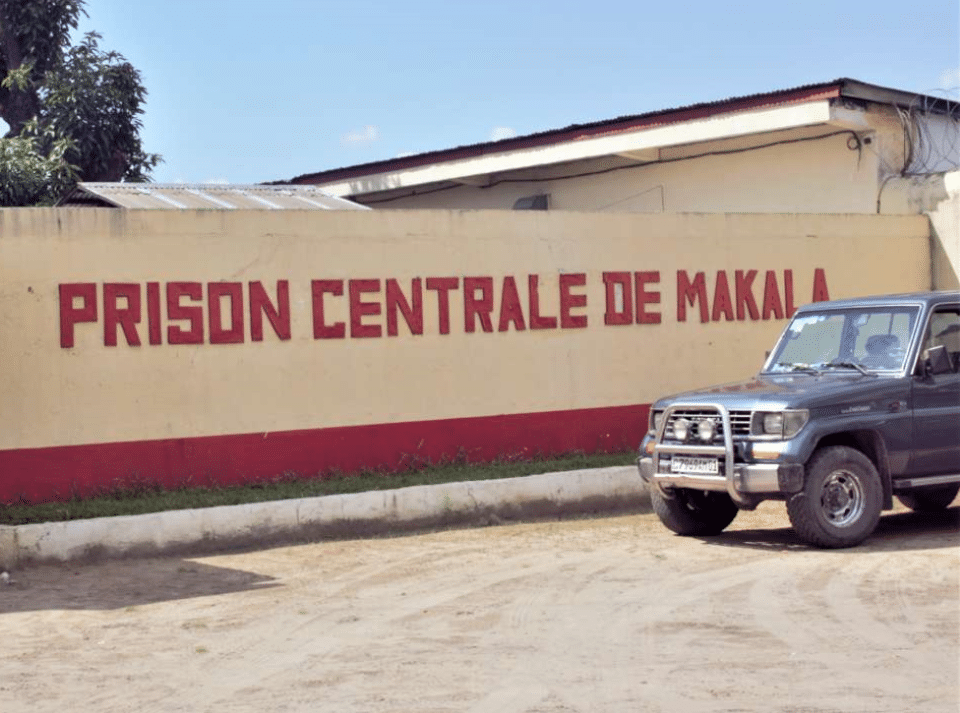
On 2 September, 129 prisoners were killed in Makala prison in tragic events that we still struggle to qualify. In the midst of this chaos, 268 of the 298 women imprisoned at Makala were victims of rape.
This tragedy was foreseeable and is unfortunately not an isolated case in the country.
ASF and its partners have been warning of the catastrophic situation of the prison system in the Democratic Republic of Congo for years.
In this Policy Brief, ASF points out that these events take place against a backdrop of massive violations of prisoners’ human rights, abusive use of preventive detention and endemic prison overcrowding.
The systematic and illegal use of pre-trial detention and the resulting inequality in criminal procedure are key factors in the prison situation in the DRC.
Since 2021, ASF has been documenting and analysing human rights violations suffered by remand prisoners and detainees with its partners through a the monitoring of detention conditions. This Policy Brief is based on interviews conducted with 3,642 detainees held in pre-trial detention during this monitoring, but also on nearly 20 years of experience and work on detention in the DRC.
No significant reform despite serious and repeated violations of the fundamental rights of detainees in the DRC
The DRC does not respect international standards and national legislation in terms of procedural guarantees and respect for the dignity of detainees. On numerous occasions, ASF and many other actors, in collaboration with the various stakeholders in the penal chain, have proposed solutions and measures to be adopted, but to date no structural reform has been proposed by the Congolese authorities.
Systematic and abusive use of preventive detention
The analyses carried out by ASF and its partners highlight the systematic and inflexible use of preventive detention.
According to estimates by detention observers in the DRC, pre-trial detention accounts for between 70 and 80% of the prison population, a phenomenon that seems to be worsening over the years.
Moreover, the data collected show that preventive detention is used systematically, even for minor offences and sometimes for offences not covered by the penal code (such as vagrancy).
In 10% of cases, the accused do not even know why they have been arrested.
Illegality of the procedure and the commodification of freedom
This systematic use of pre-trial detention is all the more unjust because, in addition to its indifference to individual situations, it is often used illegally and is part of a process of commodification of freedom.
In the case of pre-trial detention, detention is illegal when it exceeds the time limits laid down by law. Such detention must be legally regularised by a justice of the peace within 5 days. In practice, the average length of pre-trial detention for accused persons is 127 days. ASF’s analyses show that exceeding the legal time limits is the norm and that in terms of pre-trial detention, illegality is the norm.
Pre-trial detention and its use are part of a context of ‘commodification of the freedom’ of accused persons. There is a widespread practice among magistrates and judicial police officers of monetising people’s freedom by making it conditional on illegal financial transactions. Money for freedom. For the poorest, it means imprisonment for any offence. For the more fortunate, release is granted in exchange for a sum of money. Judges use their legal power to pursue private interests and enrich themselves. In other words, they are guilty of corruption.
Recommendations
- Organise frequent and regular (monthly) raids on prison registries to check the legality of detentions and, if necessary, release detainees being held illegally.
- Use disciplinary sanctions against those players in the criminal justice system who act outside the law.
- Recognise the impact of legal aid in prison and allocate the subsidies already voted (ad hoc line in the Ministry of Justice budget) to provide legal aid in prison.
- Provide the National Human Rights Commission (CNDH) with the technical and financial resources it needs to carry out its role of monitoring conditions of detention in the DRC, in collaboration with civil society organisations already involved and with expertise in this area.
- Ensure the safety and respect for the dignity of the most vulnerable people in detention, in particular women and children, in accordance with the Mandela Rules (Rule 11): on the one hand, by drastically prohibiting the incarceration of such categories of people in the men’s and/or adults’ pavilions; house these categories of people in reserved areas, away from and strictly protected from the other pavilions, giving priority to ad hoc locations that comply with Congolese law.
- Guarantee the safety of detainees, by putting an end to the kapita regime and ensuring a prisoner control system in which guards are accountable to the authorities.
- Ensure that every prisoner in the DRC has access to food, medical care, hygiene and humane conditions of detention.



